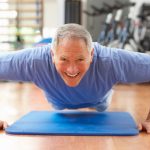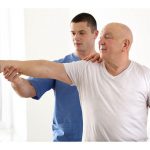
There’s good news for females who think that men shed pounds faster than women do: New research shows women get more health benefits from exercise than men, even if they put in less effort. When exercising regularly, women’s risk of an early death or fatal heart event drops more than that of men who work out, researchers found. Over two decades, physically active women were 24% less likely to die from any cause and 36% less likely to die from a heart attack, stroke or other heart event, compared to women who don’t exercise. By comparison, men who worked out regularly had a 15% lower risk of early death and a 14% reduced risk of a heart-related death compared to their couch-potato peers. “We hope this study will help everyone, especially women, understand they are poised to gain tremendous benefits from exercise,” said researcher Dr. Susan Cheng, chair of women’s cardiovascular health and population science in the Smidt Heart Institute at Cedars-Sinai in Los Angeles. “It is an incredibly powerful way to live healthier and longer,” Cheng added. “Women, on average, tend to exercise less than men, and hopefully these findings inspire more women to add extra movement to their lives.” For the study, researchers analyzed data from more than 400,000 U.S. adults between the ages of 27 and 61. The data showed that all… read on > read on >


































-300x200.jpg)



